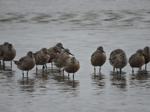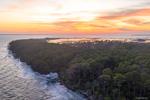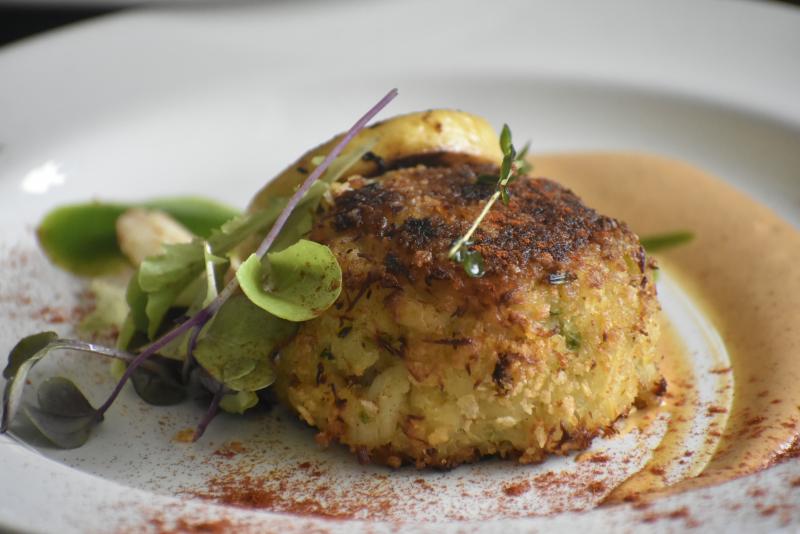A federal judge has blocked a medical laboratory in Charleston from harvesting horseshoe crabs for blood from the Cape Romain National Wildlife Refuge.
The order will remain in place until a lawsuit seeking to require a more sustainable practice has been decided.
A complaint filed last year by the Southern Environmental Law Center on behalf of Defenders of Wildlife said Charles River Laboratories International uses an extract from the horseshoe crab's blue blood to test the safety of injectable pharmaceutical drugs and vaccines. The lab relies on the harvest of these animals in South Carolina for their work.
Charles River Laboratories did not immediately respond to a request for comment about the development in the case.
The complaint further accuses the Fish and Wildlife Service of allowing and facilitating the collection of horseshoe crabs since 2014. In turn, it has killed chicks, destroyed eggs and disturbed countless birds.
The refuge is administered by the Secretary of the Interior and the Fish and Wildlife Service. But the state Department of Natural Resources issues permits for the harvesting of the crabs.
Conservation groups have pushed to end the commercial harvest of horseshoe crabs at the coastal sanctuary in Awendaw and are pleased the court granted the injunction.
Catherine Wannamaker, a senior attorney for the Southern Environmental Law Center, said the injunction is a significant victory because now through early-June is a critical window for harvest.
"You know, we're talking about a harvest in a national wildlife refuge when a listed bird species makes this one stop within the refuge to feed," Wannamaker said. "So, you know, having that stop right now is critically important."
One of the many benefits of the horseshoe crab is that it lays so many eggs. Only a few actually become baby horseshoe crabs, but the others serve as an important food source for migratory shorebirds, according to Dana Beach, a board member of the Butler Conservation Fund and founder of the Coastal Conservation League.
One specific shorebird, the red knot, really depends on the horseshoe crabs. The species has been listed as threatened under the Endangered Species Act. They nest in the Artic Circle and migrate thousands of miles to South America in the winter. These medium-sized birds make one of the longest migrations of any bird species.
Before red knots take off for migration, Beach said they fill up with carbohydrates and other food to double their body weight. They might go from four ounces to eight ounces in fat.
The birds stop about six times to refuel during their migration, and one stop is in South Carolina at Cape Romain where there are lots of horseshoe crabs.
"This horseshoe crab debate is really an existential debate about the survival of a species of life that's been with us for hundreds of thousands of years and been a part of, specifically, South Carolina," Beach said.
Since many people aren't on Cape Romain, unlike other beaches, these animals have the ability to feed extensively without being disturbed.
Beach said Charles River Laboratories Incorporated has been harvesting the horseshoe crabs to a point where it is harming the population.
"They were in a pretty big decline themselves, and that meant the red knots were also much worse off," Beach said.
Lindsay Dubin, a staff attorney at Defenders of Wildlife, said the recent court ruling brings much-needed relief to the refuge and the many species that depend on a healthy horseshoe population.
Licensed harvesters catch thousands of horseshoe crabs each year in the Lowcountry and turn them over to the lab to be bled and possibly returned to the water later that day. It is estimated that about 30 percent of the animals die as a result of the blood procedure.
The Southern Environmental Law Center has suggested the lab obtain horseshoe crabs in a place other than a wildlife refuge or use a synthetic alternative.
Although parts of the refuge are completely off limits to the public, Defenders of Wildlife claim harvesters continue to go to restricted areas.
The Link LonkMay 15, 2021 at 01:00AM
https://ift.tt/3ojjksE
Federal judge blocks medical lab from harvesting horseshoe crabs for blood on Cape Romain - Charleston Post Courier
https://ift.tt/2MkGRbk
Crab




No comments:
Post a Comment